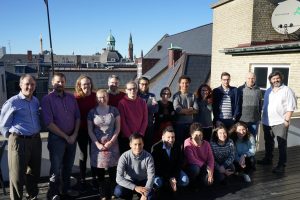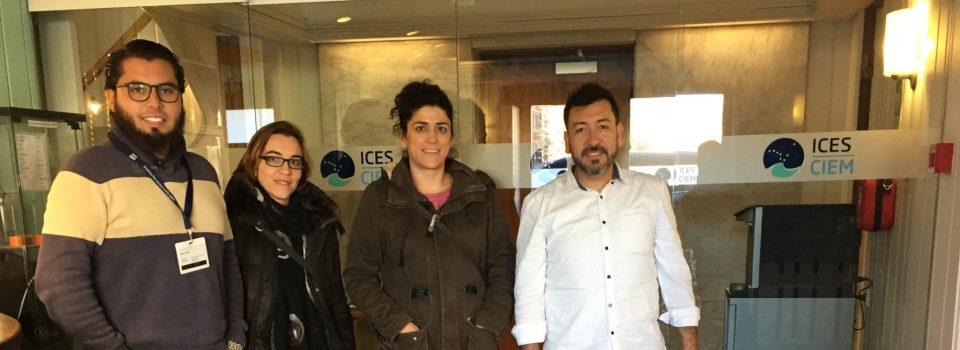IFOP researchers attend a fisheries bioeconomy course in Denmark
March 13th, 2019
Between February 25th and March 1rst , Camilo Torres (fisheries economics researcher) and Mauricio Ibarra (evaluation of fishery resources researcher) participated in “Bio-Economic Management Strategy Evaluation using FLBEIA” course, held in the International Council for the Exploration of the Sea (ICES) in Copenhagen, Denmark https://www.ices.dk/news-and-events/news-archive/news/Pages/Using-FLBEIA.aspx
FLBEIA is a reference in which a multi-stock and multi-fleet bioeconomic simulation model is constructed describing a fishery under a Management Strategies Assessment (MSE) approach. FLBEIA is a package or toolkit of the R software, called FLR.
The course’s objective was to train fisheries scientists and advisers in MSE approach analysis implementation using FLBEIA. It was organized in a series of sessions with an alternative emphasis on theoretical concepts and practical work. These sessions provided participants with the knowledge, skills and quantitative tools to undertake MSEs in their own fisheries using FLBEIA. The course addressed management strategies evaluation, operational models preparation from monospecific studies with a fleet to multi-species with multiple fleets, the bioeconomic evaluation of management strategies for mixed short- and long-term fisheries, among other contents.
Camilo Torres referred to the importance of the course “According to the current regulation, fisheries management is necessarily associated with administrative measures establishment aimed at achieving conservation objectives and fishery resources sustainable use. It is expected that such measures, whether the restriction of catches or effort, have a positive effect on the stock, from the biological point of view. Along with the above, it is necessary to previously know the effect that such measures will have on the social and economic dimension of fishing. The bioeconomic modeling allows to incorporate indicators in these three areas, calibrate them from one or more ideal or potential states of the fishing activity and compare them with the current situation of the fishery. A working area of the IFOP Economics Section is the evaluation of different exploitation strategies related to the dynamics of catches and fishing effort, considering their effect on social and economic dimension of fisheries. In this context, training in FLBEIA use will be fundamental in achieving results in this area of economic research, particularly in the demersal crustacean fishery of Chile, which we are addressing. Learning advanced techniques in bioeconomic modeling will allow to enhance the current analysis, in order to advance towards an ecosystemic approach to fisheries management “.
Camilo added “It was an enriching experience from a personal and professional point of view, because these instances allow you to generate a link with researchers from other countries, learn about different fishing realities and how the integration of the social dimension is being addressed. economic in fishery management decisions “.
Mauricio Ibarra said “Each activity, in which it is feasible to know the international reality, is positive and enriching, since it is possible to have ideas on how to address certain management problems and what have been the different experiences in this regard.”
Mauricio Ibarra is a Fishing Engineer and a Master in Statistics. His areas of interest are statistical modeling and the evaluation of fishing resource populations. The last four years at IFOP he has worked as a researcher at Resource Evaluation Department, particularly in demersal crustaceans stock evaluation.
Camilo Torres is a Fishing Engineer and Commercial Engineer, has a Diploma in Economics and a Masters in Econometrics. His areas of interest are the bioeconomic modeling of fisheries and the applied econometric analysis. He has worked for the past four years as a researcher in the Economics Section of the Fisheries Evaluation Department at IFOP.
